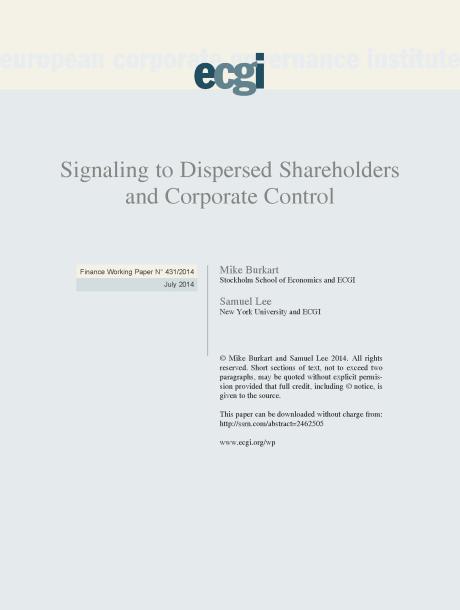
Signalling to Dispersed Shareholders and Corporate Control
Abstract
This paper analyses how outsiders, such as bidders or activist investors, overcome the lack of coordination and information among dispersed shareholders. We identify the two basic means to achieve this goal. First, the outsider must relinquish private benefits in a manner that is informative about security benefits. We show under which conditions this is feasible and which acquisition strategies used in practice meet these conditions. Second, the outsider can alternatively use derivatives to drive a wedge between her voting power and her economic interest in the firm. Such separation of ownership and control, while typically considered a source of corporate governance problems, is an efficient response to the frictions dispersed ownership causes for control contestability.










